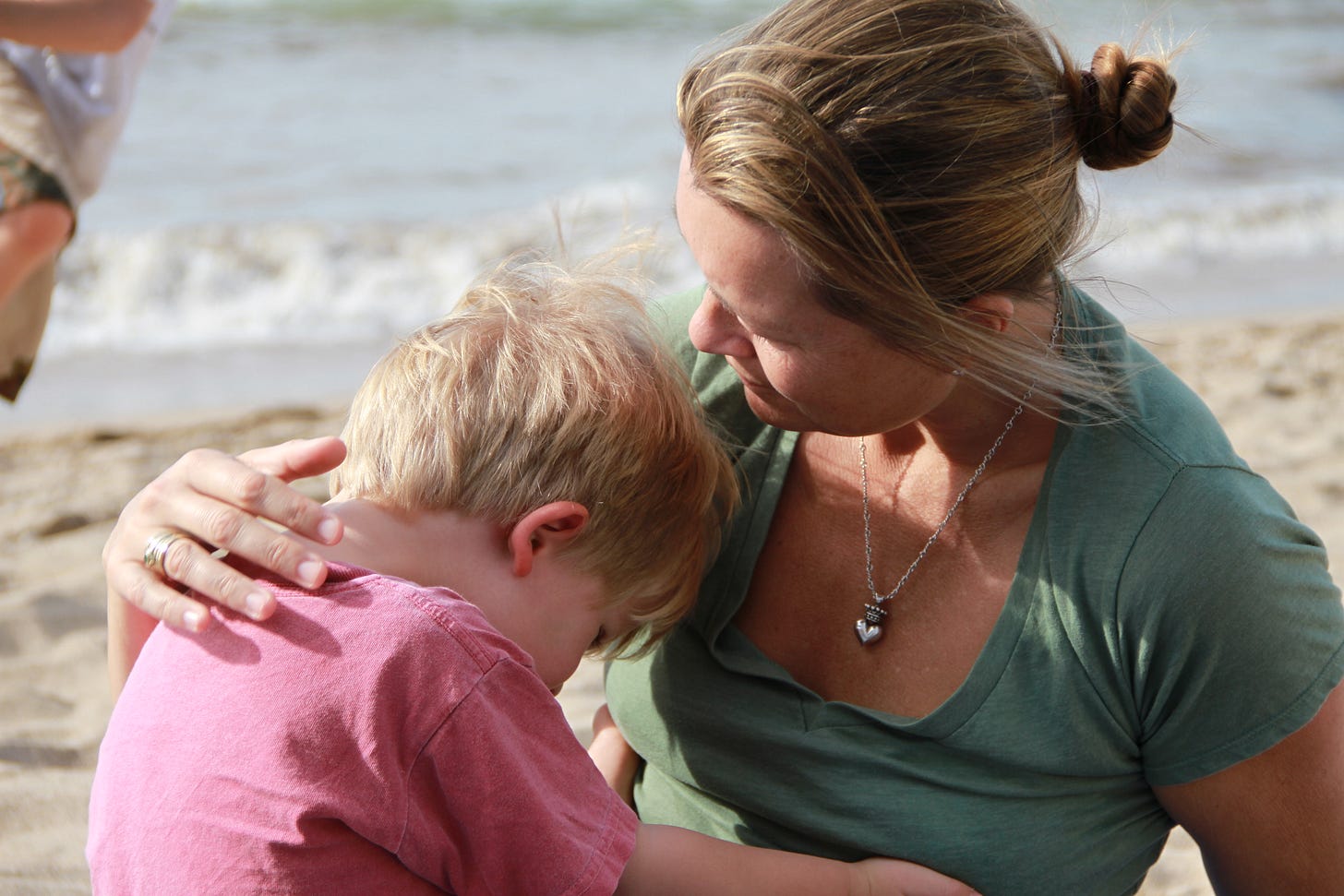It begins in infancy with a crying baby. Was the cry necessary to get your attention? Did you know the baby was awake, or hungry, or thirsty or did you rely on their cries to tell you something wasn’t right?
The toddler who is discovering their world wants to share all the new experiences with you, and perhaps even more than that, they look to you for confirmation as they navigate new things. Should I be scared of the dog on the street? Or the mud? How mad should I be when I don’t get my way? How sad should I be when I fall down? Our presence next to them as they explore, the expressions on our face, the tone of our voice, the speed of our reactions – everything we do informs their own responses to the world they are learning to navigate.
The child who yells “Mom!” across the house, who wants your endless attention, who wants to show you everything they see, do, and make. The elementary school kid with reams of paper for your inspection every day, the little league or gymnastics team they joined because their friends did, calls for limitless pushes on the swing or “watch me” on the slide. We thought babyhood and toddlerhood were exhausting. We were waiting for those few precious hours of “at school” to bring peace and productivity back into our lives.
Middle school brings different challenges – the school papers are now shoved deep into the backpack and only see the light of day when they’re late. The kid is always hungry, always grumpy, and the calls are now for rides and money and meals. Moments together on the couch, laughing at the same thing on TV or having a real discussion around the dinner table are more precious for how rare they become. Rules chafe, restrictions are pushed against, and trust becomes more fragile with every test of it.
High school is even harder as independence is expected in the school system and demanded by the kid. Drivers licenses make the call for rides obsolete, and mistakes can be simultaneously learning experiences and expensive. New rules now feel punitive and arbitrary if they haven’t been part of the rulebook the whole time, and calls for help carry the possibility of real danger and unthinkable tragedy.
And then they leave for college or work or travel, and they’re adults, and you expect they don’t want your help, and they expect they don’t need it. And maybe they’ll call if you answered their calls all those years before, but maybe they won’t. And maybe you can build a different kind of trust with your adult children, but maybe you won’t have to – because you’ve always answered their call.
They don’t tell you about the minefield you walk every day as a parent, probably because we would rarely sign up if we knew how much every decision we make on the spur of the moment might matter. Even though I slept with my babies, and wore them in slings, and they didn’t have to cry to be fed or changed, I didn’t answer every call to play, every “Mom!” that was shouted across the house. Sure, I photographed the art and celebrated the accomplishments, but I didn’t see the pain hiding under good grades and achievements, I expected a college experience like the one I remembered having, and didn’t look for anxiety or recognize depression until it was unmistakable.
I didn’t answer every call when they were growing up, but maybe I answered enough of them, because thank god they’re still calling for help when they need it, and now I recognize how very precious it is to be able to answer those calls.




